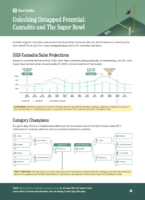As an Amazon Associate I earn from qualifying purchases.
Most cannabis operators I meet are juggling a lot more than they expected. One day they’re handling payroll, the next they’re sorting out compliance, and somehow still trying to grow the business. HR usually gets squeezed somewhere in between. It’s not that owners don’t care about it; it’s that the list of urgent problems never gets shorter.
When you’re small, spreadsheets or a simple payroll system can handle the work. Once the team grows and you’re juggling multiple locations and licenses, it can quickly become a headache that spirals into compliance issues. That’s when the cracks start to show, leading to missed overtime, misclassified roles, and late filings. In cannabis, small mistakes can have a way of turning into big expenses.
I’ve seen plenty of companies try to catch up on HR after the fact. They hire fast, move fast, and tell themselves they’ll build systems later. But when “later” comes, it’s usually because something’s gone wrong: a penalty, a compliance notice, or a frustrated employee who’s had enough.
Why HR in Cannabis is a Different Animal
Cannabis HR isn’t like any other HR department. There’s 280E, a tangle of labor laws, local tax codes, and rules that can change without notice. Throw in cultivation, retail, and delivery, and you’re basically running three businesses with three sets of challenges to keep up with.
Anyone who’s managed a cannabis operation knows how quickly details pile up. With so much focus on running the business, compliance often becomes one more thing fighting for attention. HR updates and new requirements usually end up being implemented only after something goes wrong.
There’s so much happening at once that handling HR in-house just isn’t practical anymore. Outsourcing helps keep things steady as rules change and teams expand. A good partner takes care of payroll, benefits, and compliance so operators can stay focused on running the business. Paperwork is the easy part. What really counts is having a structure that keeps things accurate and transparent. Since cannabis rules evolve so quickly, having someone who knows how to navigate them helps the whole operation stay stable.
Outsourcing as a Strategy, Not a Shortcut
Cannabis businesses have to play by a different set of rules. What works for a regular company doesn’t always work here. Multi-state operators juggle several tax systems, and independent shops often have a mix of hourly or commission-based staff. Once you add licensing reviews and compliance paperwork, even simple payroll starts to feel complicated.
Having outside HR support creates a clearer picture of how the business operates on a day-to-day basis. Reports are consistent, compliance is checked, and data is organized in a way that helps owners make real decisions, not guesses. That kind of structure keeps everyone accountable, from leadership to line staff. It also builds confidence across the team, because people know their pay, records, and benefits are being handled properly.
Why Cannabis Businesses Need Specialists
Cannabis is a unique space, and it deserves solutions that understand its reality. Generic HR solutions rarely account for how cannabis really operates. For instance, once you start crossing state lines, everything changes. Taxes, employee rules, and pay structures vary.
Smaller shops face their own set of challenges, often juggling teams paid hourly, on commission, or a mix of both. Layer on license renewals, inspections, and compliance checks, and even what seems like routine HR work can quickly turn into a full-time job that eats up hours from managers and owners alike.
Someone who understands how a cultivation facility operates, or how dispensary schedules overlap with retail laws, can spot problems before they surface. A generic provider usually can’t.
What a Good Partnership Looks Like
Outsourcing HR should never feel like losing control. The best partnerships are collaborative. They work because both sides communicate, share goals, and stay flexible as rules change.
When you’re vetting a provider, the questions matter:
- Do they understand cannabis, not just payroll?
- Can they handle compliance, benefits, and reporting together?
- Do they know your state and local labor laws?
- How do they handle updates when those laws shift?
Those questions may sound simple, but they’re the difference between a vendor and a real partner. A good HR team doesn’t just process payroll; they help you understand what’s coming next and how to stay ahead of it.
Building For The Long Term
Getting HR right early pays off later. If the systems run clean and the team feels looked after, you feel it across the board. When payroll runs smoothly and schedules hold steady, compliance gets easier. And people stick around, because the job feels stable.
It also helps leadership think bigger. Once the basics are handled, owners can look at growth, benefits strategy, and training instead of fighting fires. When investors or lenders start asking about your internal systems, you’ll already have the documentation to show you’re operating like a mature, stable business.
I’ve seen what happens when companies try to manage HR on their own, and I’ve seen what happens when they build the right partnerships. The difference isn’t just in compliance, it’s in confidence.
As the cannabis industry matures, the companies that last will be the ones that understand HR isn’t a side task. It’s really what keeps the whole operation steady. Whether you manage it in-house or bring in a partner, getting it right early saves a lot of pain later.
The post The Case for Outsourcing HR in Cannabis appeared first on Cannabis Industry Journal.
Amazon and the Amazon logo are trademarks of Amazon.com, Inc, or its affiliates.

